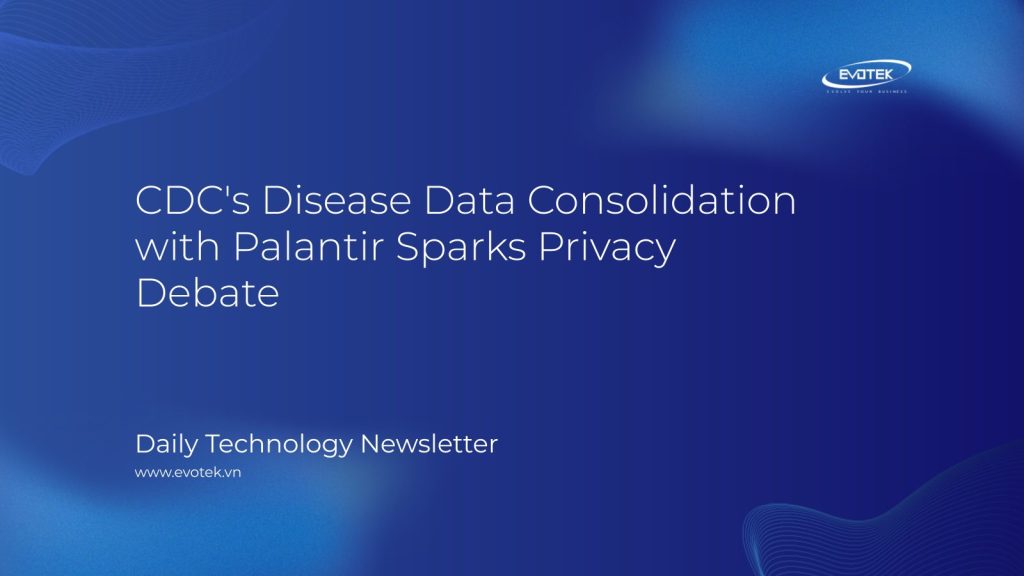Plans by the Centers for Disease Control and Prevention (CDC) to centralize disease data under a system managed by Palantir, a data analytics firm co-founded by Peter Thiel, are facing scrutiny over potential privacy risks and the impact on long-term trend analysis.
The move, intended to modernize the CDC’s data infrastructure, follows criticism of the agency’s outdated systems during the COVID-19 pandemic. The Trump administration’s expansion of Palantir’s role across federal agencies has fueled concerns among state and local officials regarding data sharing with the CDC.
Palantir’s Foundry platform, already in use by the Department of Health and Human Services, the Food and Drug Administration, and the National Institutes of Health, could merge information from various agencies. This has triggered worries about the potential exposure of individuals with sensitive health needs, such as gender care, reproductive health care, or disabilities.
Dr. Philip Huang, director of Dallas County Health and Human Services, expressed support for modernizing public health data systems but voiced concerns about possible misuse and abuse.
Andrew Nixon, a spokesman for the Department of Health and Human Services, stated that the transition aims to modernize outdated public health infrastructure and does not compromise data privacy.
Healthcare providers are mandated to report nationally notifiable diseases to local or state health departments. While states decide how much data to share with the CDC, concerns persist about potential data exposure, especially in states with smaller populations where de-identified data may still reveal patient identities.
The CDC’s transition to the One CDC Data Platform (1CDP) will delay the release of annual data for 2024 and 2025. Health officials can still access data about current outbreaks, but experts emphasize the importance of annual data for identifying regions of concern and planning future public health responses.
Jennifer Nuzzo, director of the Pandemic Center at Brown University, acknowledged the need to modernize the agency’s data systems but called the delay in reporting notable diseases “completely unacceptable” given multiple serious outbreaks across the U.S.
The decision to transfer the data has surprised state officials and many CDC staff members. States are not obligated to share their data with the CDC, a factor that has previously hindered the agency’s ability to understand national trends.
Some CDC officials fear that states may withhold data due to concerns about privacy and funding cuts. An incomplete national picture of infectious threats could result if states withhold crucial details.
Dr. Nuzzo emphasized that credible assurances regarding appropriate data use and privacy maintenance are necessary to ensure continued disease reporting in the U.S.

 日本語
日本語 한국어
한국어 Tiếng Việt
Tiếng Việt 简体中文
简体中文